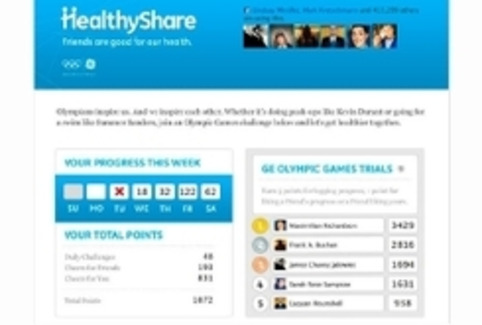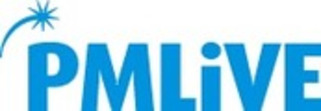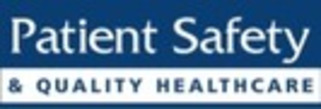 Your new post is loading...

|
Scooped by
rob halkes
November 22, 2012 1:16 PM
|
In order to continue to be viable in the next decade, the pharmaceutical industry is adapting in ways that might seem surprising just a few years ago. The pressure to reduce costs coupled with the need to be more innovative and still comply with U.S.

|
Scooped by
rob halkes
November 22, 2012 1:14 PM
|
Looking into the future of the value chain of the pharmaceutical, biotech and life sciences industry. These reports provide an in-depth analysis of research and development (R&D), sales and marketing or commercial, supply chain functions.

|
Scooped by
rob halkes
November 22, 2012 8:03 AM
|
Roche, social media and patients part 2 In September Roche UK invited representatives from 50 patient groups for an intriguing event at The Wellcome Collection in London. The first part of this article covered Roche’s goals for the Share+ social media and digital summit and I’ll now turn the patient groups themselves and the issues they face when it comes to social media and digital technology. Challenges mentioned by the audience during the sessions included: how to make websites more user-friendly for the elderly; developing local social media policies; and building and mobilising patient communities to advocate for better access to medicines or services.

|
Scooped by
rob halkes
November 22, 2012 7:58 AM
|
Pharma insight on digital marketing, social media, mobile apps, online video, websites and interactive healthcare tools by Dominic Tyer Roche, social media and patients – part 1 UK pharma company talks about its digital patient group summit Share+ In September, Roche UK invited representatives from 50 patient groups for an intriguing event at The Wellcome Collection in London.

|
Scooped by
rob halkes
November 21, 2012 3:25 AM
|
Can online social networks encourage improved health behavior? GE Healthcare recently commissioned consumer research related to this topic and convened a global panel of experts to discuss it, as well. The collective results show that engagement is notable but there’s work to do to convert conversations into changes in behavior. The survey found out that 26 percent of U.S. online adults have discussed health information online—through social media, online communities, message boards or forums—in the past 12 months. It also found that a conservative 30 percent of those who had discussed health information online have changed a health behavior, such as a change in diet or fitness, as a result. According to the survey, many online adults agreed that others knowing about their diet, health and fitness, and/or specific medical condition(s) is the top concern to discussing health information online (46 percent). However, during the GE Healthcare virtual roundtable on social networking in health, held in October 2012, actively followed on Twitter, the panel of global experts stressed that accuracy of information should be even more top of mind for consumers (vs. privacy).

|
Scooped by
rob halkes
November 20, 2012 12:11 PM
|
The majority of online Europeans don’t want to learn more about prescription drugs directly from pharmaceutical companies, according to new research. But the study, from Manhattan Research, found that a sizable minority - 40 per cent - did want more drug information from pharma, as long as it doesn’t reach them via Facebook or Twitter. The Cybercitizen Health Europe found that among consumers already using, or interested in, online information and tools from pharmaceutical companies, only 13 per cent wanted to access this content on Facebook and 5 per cent on Twitter. In contrast, the study found 43 per cent of this audience would like to obtain pharma resources from websites about conditions and diseases... The report also outlined an area of opportunity for pharma to provide practical patient education, with online consumers indicating they are much more interested in accessing online resources such as disease and treatment information and condition management tools, than in online contests and games.

|
Scooped by
rob halkes
November 16, 2012 12:55 PM
|
Bridging the divide How can pharma engage with payers who are less digitally savvy than their clinical counterparts and are more than a little sceptical about information and where it comes from? Digitally enabled solutions have and continue to transform the way that healthcare is monitored and delivered, leading to better patient outcomes and efficiencies in the delivery of healthcare. Digital has transformed the way the pharma industry engages and communicates with some of its key customers. From disease awareness websites, to discussion forums, to self-detailing, the industry is increasingly incorporating digital platforms as a critical component in the commercialisation of a medicine. However, when it comes to payers, it seems that one of the industry’s most important customers has been largely excluded from this ‘digital evolution’. While the industry is always being told how much time key customers are spending online, and educated about their digital behaviours, there is little to inform payer digital communication programmes.... Just how do health care payers use digital? ...

|
Scooped by
rob halkes
November 16, 2012 1:55 AM
|
Here's the debate between John Mack and Michael Spitz, concentrating on a silly controversial - See my comment? Intelligence is in asking the question right, don't you think?

|
Scooped by
rob halkes
November 3, 2012 7:40 AM
|
Poll Shows Growing Satisfaction with Pharma's use of Social Media Posted by Ben Steele on Oct 25, 2012 A recent survey indicates that those clinging to the argument that pharma are behind in the digital space, may be beginning to fall behind themselves... A recently released WEGO Health/Digital Health Coalition survey suggests that pharma companies may finally be warming up to social media. The recently-conducted survey of 356 health activists showed that 81% believed pharma used social media 'to provide their communities with important updates on products or services'. The amount of people who subscribed to the above viewpoint went up 9% from last year’s survey findings.

|
Scooped by
rob halkes
October 28, 2012 4:42 AM
|
Who gets to say what’s patient-centered? (Hint: the one who’s IN the center) by e-PAtient Dave PCORI’s charter – its very name – is to develop Patient Centered Outcomes. That raises the question: Who gets to say what’s patient-centered? We should. The scientific establishment won’t turn on a dime with this one patient weekend, so what COULD we persuade PCORI and the attending scientists about? My view: To me the core question of the weekend is: Who gets to say what’s patient-centered? I say, it’s the one who’s in the center. Who else could possibly know if things are balanced around them? So, I suggest: in any patient-centered outcomes project, patients should participate not just in selecting projects or goals/outcomes (from a scientist-generated menu), but in defining the goals, the desired outcomes, even what they’d like researchers to pursue. This is a maturing of the patient’s role, and a shift in the researcher’s role to one of partnership rather than “doctor knows best.” So here’s a possible outcome for this PCORI weekend: can we agree, as a core part of the PCORI culture, that it’s time for patients to move into the front seat, and be part of the process from the very beginning? Patients could shift from just
selecting from scientist-defined outcomes
to helping specify what objectives would be valuable
in the patient’s view, and
even how the results should be evaluated.

|
Scooped by
rob halkes
October 26, 2012 8:03 AM
|
LONDON (Reuters) - Europe's drug regulator has started an infringement procedure against Switzerland's Roche to investigate its alleged failure to properly report tens of thousands of potential drug side effects.
If found guilty, the world's biggest maker of cancer medicines could be fined up to 5 percent of annual EU turnover which totaled 12.8 billion francs ($13.8 billion) in 2011, or 640 million francs. It was first time the London-based European Medicines Agency (EMA) has launched such proceedings since legislation came into force five years ago. "The agency will report the outcome of its investigation to the European Commission who may impose fines or periodic penalty payments ... if it finds that Roche has committed an infringement of its obligations," the EMA said on Tuesday. The issue of drug-safety reporting by Roche was first highlighted by the agency in June after a routine inspection by British investigators found it had failed to fully assess up to 80,000 cases of possible adverse drug reactions. ... read the blog

|
Scooped by
rob halkes
October 15, 2012 12:56 AM
|
FirstWord Pharma - Gain Access to the Information You Need Track the Companies, Products, and Regulatory Areas of Most Interest to You...

|
Scooped by
rob halkes
October 15, 2012 12:55 AM
|
GlaxoSmithKline, criticized in the past for keeping important information about its medicines to itself, is to lift the lid on more of its drug secrets. Three months after GSK was fined $3 billion for fraud in the United States, where prosecutors accused it of concealing safety issues, chief executive Andrew Witty said on Thursday detailed data from its clinical trials would be made available to other researchers. That would include anonymised patient-level results that sit behind clinical trials of approved and failed drugs. Britain's biggest drugmaker will set up an independent panel of experts to review requests submitted by researchers, which will then be vetted for scientific merit, a company spokesman said. The new system will start at the beginning of next year. The move is a first for a major pharmaceutical company. In July, GSK reached a record $3-billion settlement with the U.S. government, pleading guilty to charges that it had provided misleading information on some drugs, including antidepressant Paxil and diabetes pill Avandia. "By being more open with our clinical trial data, we also hope to help further scientific understanding," Witty said in a statement. Other companies have faced similar charges in the United States and Witty's decision to expose his company to greater scrutiny may push rivals to follow suit. The industry is, in any case, under pressure from regulators to open up. The European Medicines Agency recently decided to make its own data vaults containing drug company trial results available for systematic scrutiny. Critics of the drug industry, including the respected Cochrane Collaboration, which carries out systematic healthcare reviews, have long argued that researchers need access to full data from clinical trials. Such information is a treasure trove for scientists wanting to test drug company claims and expose product deficiencies. The industry's failure to provide full access to such data was blasted in a recent book which received widespread public attention in Britain; "Patients are harmed when data is withheld," Ben Goldacre, author of "Bad Pharma", told Reuters. "It is great that GSK has made further promises of greater transparency, but promises are not enough, because they have been broken in the past. We will only see if this promise is different in the years to come." Witty reaffirmed a commitment to seek publication of results of all clinical trials evaluating its medicines - regardless of whether the results were positive or negative for the company - in peer-reviewed scientific journals.

|
Scooped by
rob halkes
October 15, 2012 12:51 AM
|
US Food and Drug Administration (FDA) Commissioner Margaret Hamburg Pay attention, as I can’t say this seriously enough. Last week, the FDA took a drug off the market, and the reasons should send shivers of fear down the backs of consumers,...

|
Scooped by
rob halkes
October 4, 2012 4:12 AM
|
The biggest challenge to treating patients with diabetes isn’t doling out medications, it's making sure that people control their habits. Poor diet and lack of exercise generally create complications with the disease.

|
Scooped by
rob halkes
October 3, 2012 3:34 AM
|
Rx adherence better when docs share notes: study | Most physicians who let patients read their notes over the course of a year as part of a study concluded that the practice was a good idea, and most patients in the study said the experience increased their medication adherence, according to a report in the Annals of Internal Medicine.

|
Scooped by
rob halkes
September 24, 2012 5:54 AM
|
Luke Tiimer man states: Last week, I made a case that Twitter has begun to come of age in biotech, and it’s now a must-read source of real-time industry news and information. Here's his list of all the people he selected to be worthwhile to follow. See and decide! But thing is: pharma, biotech and life sciences are on the social site of the business! Be there with them.

|
Rescooped by
rob halkes
from Digital Pharma
September 17, 2012 3:36 AM
|
Boehringer Ingelheim has announced the beta launch of its first social game on Facebook, called Syrum. Syrum will be a new and evolving platform for the research-driven pharmaceutical company to inspire and educate in a changing digital world. In development for more than two years, Syrum has been specifically designed to demonstrate the complex processes around medicine research and development through gaming mechanics. It aims at promoting science and innovation to the digital community in a fun and engaging way.
"The use of gaming in education has been put to effective use all over the world as more organisations appreciate that humans are better motivated and stimulated by interaction, fun and engagement", says Dr Jez Rose, behavioural psychologist from Buckinghamshire, United Kingdom. "Syrum is a fantastic example of how fun gaming can be used to provide educational delivery, whilst maintaining interest and engagement through a logical, platform learning style."
Syrum allows players to create and run their own pharmaceutical company, using a virtual laboratory to discover and develop imaginary medicines to improve the health of the world. Molecular compounds can be developed and then traded with other players. In each ‘chapter’, the player has to solve a particular problem, whether a disease or a pandemic. The goal is to discover cures by first creating a stable medicine, conducting a clinical trial and finally bringing the medicine to the market. "The research driven pharmaceutical industry is immersed in education - whether aimed at medical or pharmaceutical professionals or providing information directly to the public," says John Pugh, Director of Digital at Boehringer Ingelheim. "Gaming is an experimental way for Boehringer Ingelheim to do this. The challenge is to do this in a truly engaging, educational and entertaining way that immerses the player." Syrum is built on Facebook, and has already generated a high level of interest, both within the pharmaceutical industry and amongst gamers. More than 1,000 people have already signed up to play in advance of the launch via the website www.syrum-game.com. The game is launched first in a beta format outside the US and Canada to actively encourage feedback from the players and will be constantly developed based on the players’ ideas and thoughts. The official global launch of Syrum is planned for 2013.
Via Thibaud Guymard

|
Scooped by
rob halkes
September 11, 2012 5:27 AM
|
Andrew Spong (@andrewspong) writes: 'By dint of the sheer weight of evidence that has accrued over the past three years alone, Boehringer Ingelheim may reasonably be identified as the pharma company that sets the pace for the industry in digital environments. However, this is not because of Boehringer’s having led the way on facebook with regard to its handling of comments, nor its conversational disposition on Twitter, nor its experiments in the gamification of clinical research, nor the way it used social to raise awareness around atrial fibrillation, nor its experiments with outré humour. It is not even because later this week Boehringer will become the first pharma company to launch a game which has been designed first and foremost to be fun and perhaps convey some indirect benefits, rather than a vehicle built for the primary purpose of delivering a direct message: [Syrum] wasn’t built with a view to being an educational platform or anything like that. It’s very much a game which is meant to be engaging and entertaining to play. In the same way that Farmville doesn’t just appeal to people who like farms, Syrum isn’t just for people who like the pharmaceutical industry. It’s for anyone to play. John Pugh, Director of Digital, Boehringer Ingelheim In the last instance, Boehringer merits recognition as the digital leader in the pharma industry not because of what it has achieved, but because of what its activities say about the cultural evolution that has taken place within the company. Boehringer’s every action speaks of its commitment to embodying what ‘being innovative’ means. Not its just giving lip-service to innovation. Not its hoping to be seen to be innovative whilst doing little of real merit. Not spending its time considering which ride to take next on the platform carousel. The course that Boehringer has steered over the past three years marks it out as a company that aspires to being a leading company in digital environments, not just the leading pharma company in digital.' [AS: Click on the title link above to read the full article]

|
Scooped by
rob halkes
September 3, 2012 5:33 AM
|
About the question wether "Pharma" should correct wikipedia's "misinformations": Only 6.8% agree in @pharmaguy's survey via @farmerfunster @soulflsepulcher Re Wikipedia editing in #socpharm @cadelarge tweetup see @pharmaguy survey http://t.co/LYdaunIv & #hcsmeu tweetup Q1 15-Jun

|
Scooped by
rob halkes
August 31, 2012 9:36 AM
|
Patient engagement sounds like a utopian, out-of-touch goal of Meaningful Use. But there is truth in numbers, and they show that engagement is a must. Healthcare must be built on a foundation of Health IT-supported care coordination and patient engagement, there is no other way to consistently and quickly scale improvements and care, and to accelerate the overall learning of the health care system. As Topol points out, this is the path to real, personalized medicine, and away from the population-based studies and results that we’ve seen...

|
Scooped by
rob halkes
August 15, 2012 1:43 AM
|
IBM Studying CEO's opinions: By analyzing findings of interviews with over 1,700 CEOs worldwide, the fifth biennial IBM Global CEO Study, “Leading Through Connections,” reveals how CEOs are prioritizing the creation of more impactful connections with their employees, customers and partnerships! In speaking face-to-face with 1,709 CEOs, general managers and senior public sector leaders around the globe, leaders confirmed that our new connected era is changing how people engage.

|
Scooped by
rob halkes
August 13, 2012 3:24 PM
|
WIll pharma marketing become de facto multichannel marketing in the future? In the future? uh... See the results form the poll initated by @lenstarnes Inspiring responses. Don't you think too, that pharma marketing in relatiy is always one step behind to where it should be? Well, it is a difficult task, inchaing market conditions and with internal cutbacks to change and develop.. I do understand, but can I approve this lacking behind? Can you? ;-)

|
Scooped by
rob halkes
August 3, 2012 2:31 PM
|
The FDA has approved the first digestible microchip for humans. Proteus Digital Health has created a chip that’s safe to embed in a number of pharmaceuticals.

|
Scooped by
rob halkes
August 1, 2012 1:20 PM
|
excerpt: Q&A with Dominique Hind What is the most important change to marketing over the last 5 years? Dominique: The adoption of social media and the seismic change that it has brought to digital behaviours, communications..
|
 Your new post is loading...
Your new post is loading...
































